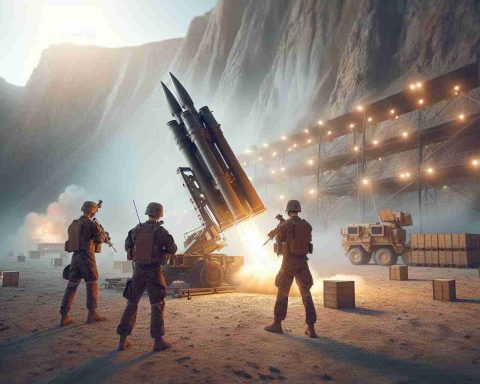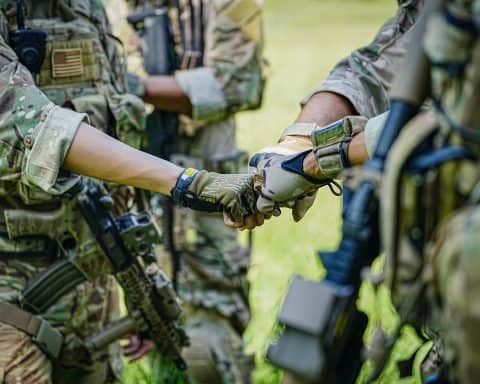- A new conflict in Sudan sees the Rapid Support Forces (RSF) claiming to have downed a Sudanese Army aircraft in Darfur, highlighting ongoing hostilities between these factions.
- The struggle between the RSF, led by Mohamed Hamdan Dagalo, and the Sudanese Army is rooted in a power struggle that disrupted hopes for peaceful civilian governance.
- The conflict has reshaped Sudan’s socio-political landscape over nearly two years, displacing over 12 million people and creating a widespread humanitarian crisis.
- Khartoum, the capital, has been severely impacted, with an estimated 61,000 deaths in the early months of fighting.
- The larger challenge remains achieving enduring peace through dialogue and unity, beyond military confrontations.
In the vast and tumultuous realm of Sudan, a new chapter of conflict emerges. A dramatic event unfolded in the skies over northern Darfur, as the paramilitary Rapid Support Forces (RSF) claimed they downed an Antonov military aircraft belonging to the Sudanese Army. Images of wreckage surfaced, showcasing twisted metal amidst the stark desert landscape, a potent symbol of the ongoing struggle for dominance. The aircraft’s fall marks yet another episode in the relentless tug-of-war between the two opposing forces.
This recent skirmish is a continuation of a lengthy conflict that has reshaped Sudan’s socio-political landscape. The RSF, under the leadership of the fiercely determined Mohamed Hamdan Dagalo, vowed to press on with their campaign against the army, despite being pushed back from Khartoum. Their retreat from the capital, however, does not signal defeat. Dagalo’s forces maintain a firm foothold in Darfur, brewing plans to reassert their presence in the heart of Sudan.
The origins of this war can be traced back to a power struggle between the army and the RSF, derailing hopes of a peaceful transition to civilian governance. Now, nearly two years into the battles, the anguish has etched itself onto the lives of millions. Khartoum has been gutted by the conflict, which displaced over 12 million people, creating a humanitarian crisis of a grand scale. The specter of hunger looms over half of the nation, as supply chains have crumbled and infrastructure lies in ruins.
Casualties are a sombre testament to the war’s toll. In Khartoum state alone, studies estimate the death toll may have reached 61,000 in just the early months of the conflict. These figures, however staggering, fail to capture the personal stories of loss and endurance imprinted on the Sudanese people’s hearts.
This unfolding narrative in Sudan is more than just a battle for land or power; it is a grim reminder of the fragility of peace and the high cost of its absence. Though the Sudanese Army seems to have fortified their position in Khartoum, the wider conflict they face is far from resolution.
The take-home message is clear: though battles may be won or lost, the enduring peace that Sudan yearns for requires more than military might—it demands a return to dialogue, understanding, and the spirit of unity. As the drama continues to play out in this troubled nation, one can only hope that the horizon brings a new dawn of reconciliation and lasting peace.
Devastating Skies: The Deepening Crisis in Sudan and Its Global Repercussions
Unpacking the Conflict: Beyond the Shootdown
The ongoing conflict in Sudan, highlighted by the recent downing of an Antonov military aircraft in Darfur by the Rapid Support Forces (RSF), is not just a tale of territorial dominance but a multidimensional crisis with far-reaching implications. Here are several facts and perspectives that were not fully explored in the source material:
Causes and Historical Context
1. Historical Origins: The conflict traces its roots to the power struggles post-independence, exacerbated by the fractious relationship between predominantly Arab and African ethnic groups in Darfur. Decades of neglect, underdevelopment, and marginalization have fueled recurrent conflicts.
2. Failed Transition to Democracy: Following the ousting of long-standing dictator Omar al-Bashir in 2019, Sudan’s path towards democracy was marred by military influences and rivalries, particularly between the Sudanese Armed Forces and the RSF.
3. Role of External Actors: Neighboring countries and global powers have vested interests in Sudan, complicating internal conflicts. Allegations of arms supply to warring factions from foreign entities have deepened the crisis.
Humanitarian Impact
4. Displacement Crisis: With over 12 million people displaced, Sudan faces one of the worst humanitarian crises. Internally displaced persons (IDPs) and refugees in camps lack basic necessities, exacerbating human suffering and disease outbreaks.
5. Economic Collapse: Infrastructure destruction and trading disruptions have plunged Sudan into an economic abyss, with inflation rates soaring and the local currency losing value rapidly.
Potential Solutions and Steps Forward
6. Mediation and Dialogue: Experts suggest that regional bodies such as the African Union and international organizations should spearhead sincere mediation efforts. Support for political negotiations must be strengthened to avoid further escalation.
7. Humanitarian Aid: International support is critical in providing relief to millions, with emphasis on rebuilding infrastructure and restoring supply chains critical for food and medical supplies.
8. Strengthening Civilian Governance: Investment in democratic institutions and civilian-led governance is essential for long-term stability. This involves empowering local communities and fostering inclusive dialogue.
The Global Impact and Controversies
9. Influence of Geopolitics: Sudan’s location makes it a strategic interest for Middle Eastern and African politics, with interventions often viewed within a broader geopolitical chess game.
10. Arms Trade Controversies: The conflict has drawn attention to the international arms trade’s complicity in fueling wars, prompting calls for stricter regulations.
Industry Trends and Market Forecasts
– Security: As the conflict persists, the private security sector in Sudan and neighboring regions is likely to experience growth, driven by demand for protecting humanitarian aid routes and non-governmental organizations.
– Sustainability: Long-term prospects for economic recovery hinge on international partnerships focused on sustainable development, including investments in renewable energy and agriculture.
Actionable Recommendations for Immediate Impact
– Support Humanitarian NGOs: Donations and volunteer efforts to reputable NGOs working on the ground can alleviate some immediate humanitarian burdens.
– Promote Awareness: Sharing accurate information through social media and engaging with global advocacy campaigns can keep the world’s eyes on Sudan.
– Participate in Advocacy: Join or support advocacy groups calling for global diplomatic pressure to initiate peace talks.
In conclusion, the situation in Sudan serves as a poignant reminder of the interconnectedness between peace, development, and human rights. Building a sustainable future for Sudan will require concerted global efforts, empathy, and a commitment to fostering a conflict-free world.
For further information about current events and international affairs, visit BBC and Reuters.











